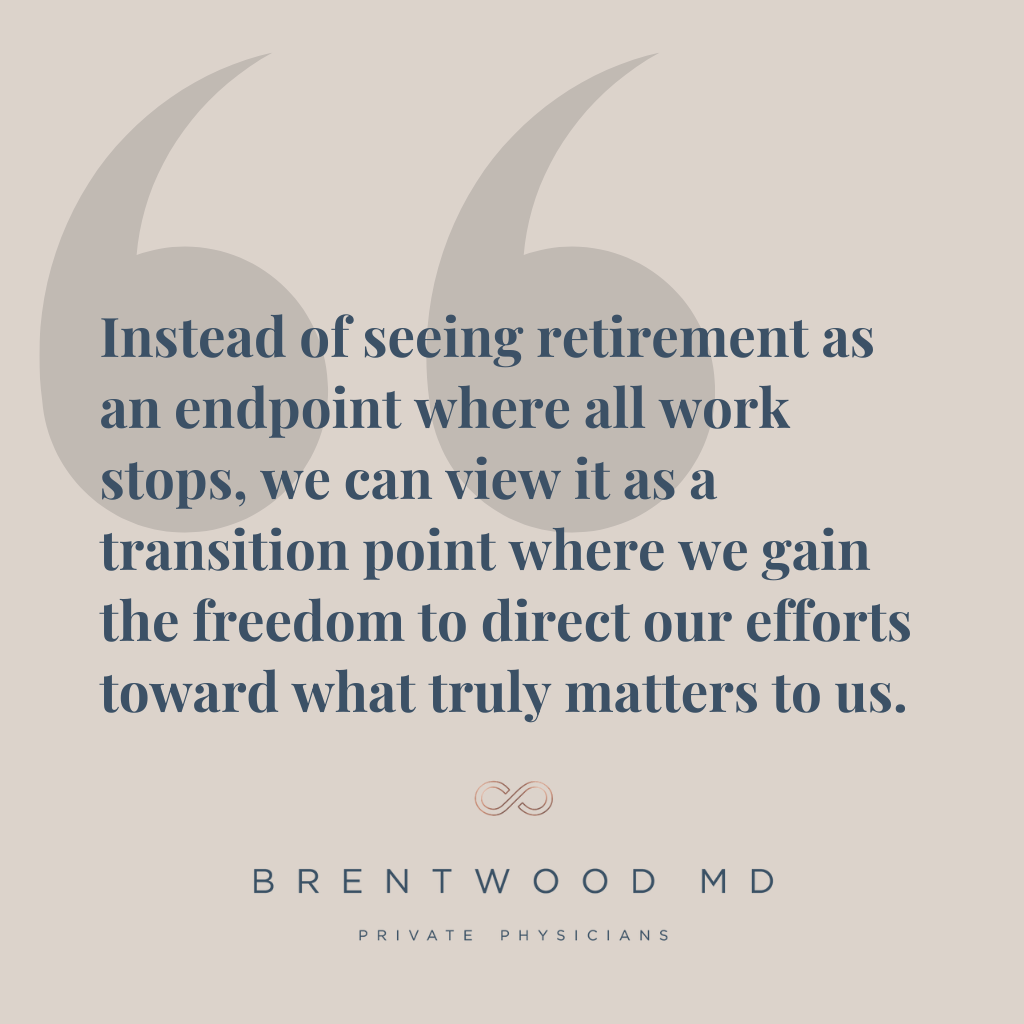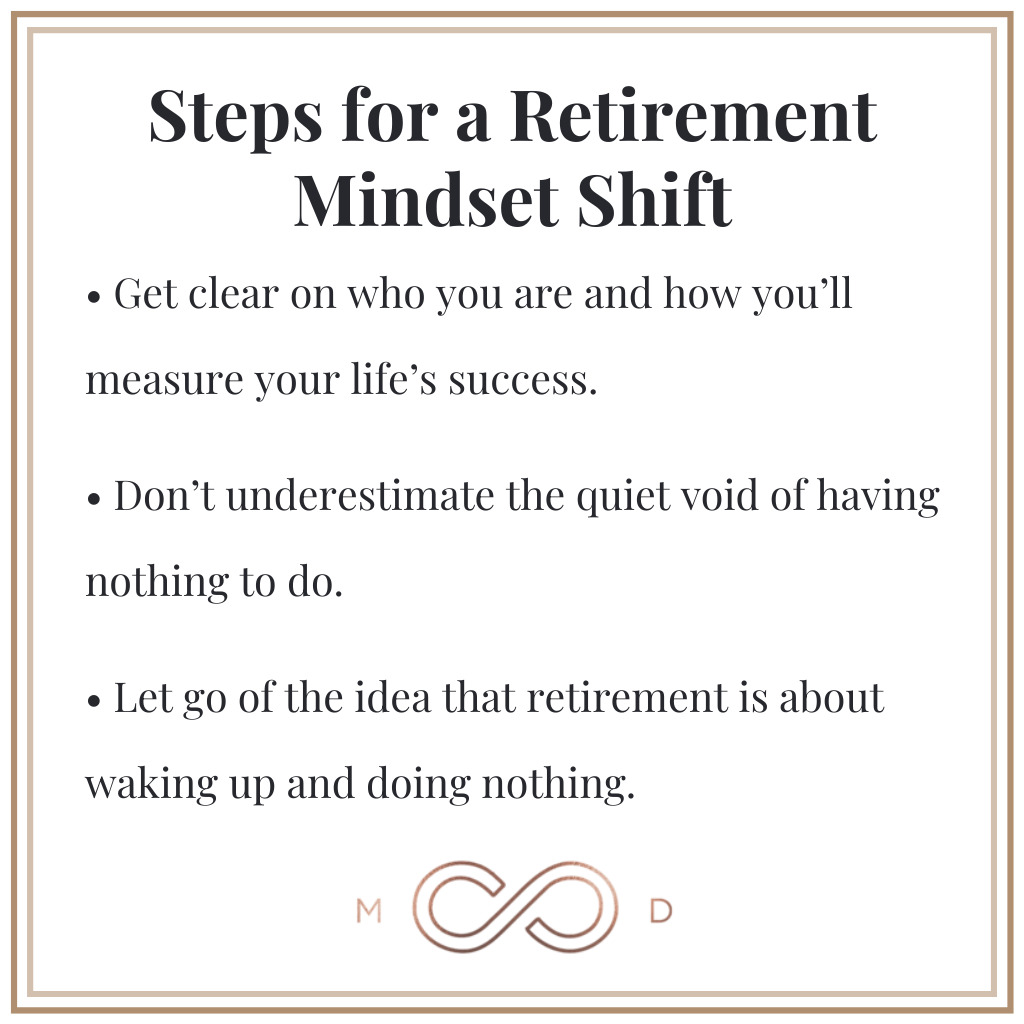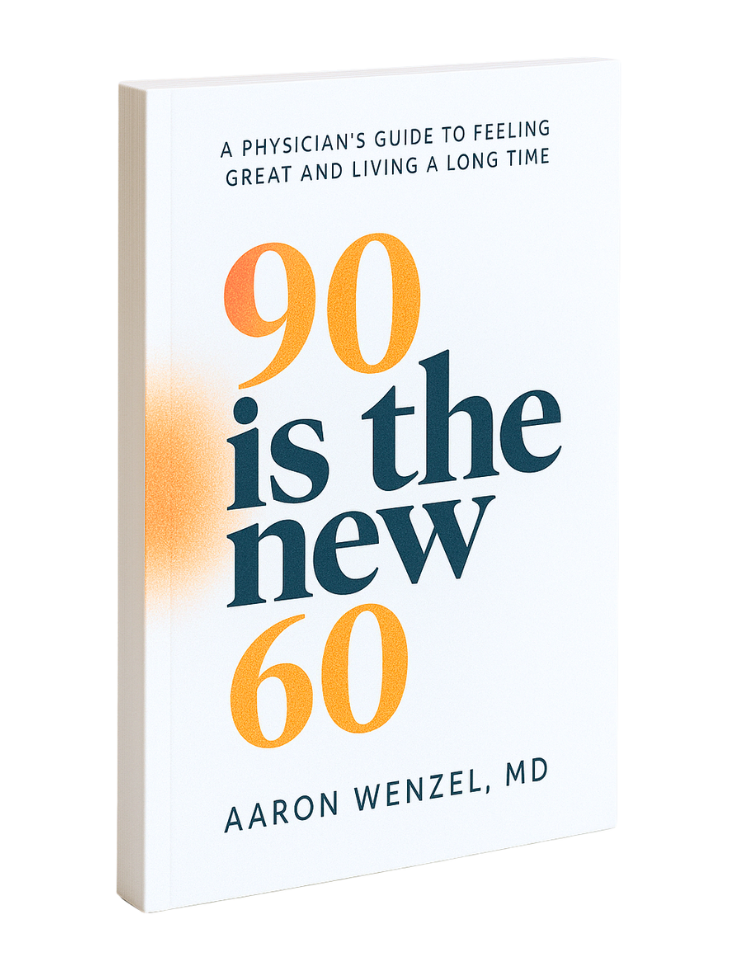Retirement. It’s an enticing image: Work hard for decades, save up, then finally reach a stage where you can just do nothing.
This modern concept of retirement is surprisingly new in human history. Born of the Industrial Revolution, it tramples the previous paradigm in which people continue to contribute to society or family units as long as they’re capable.
As a physician focused on longevity, I’ve observed that the promise of “doing nothing” usually turns out to be an empty one. Yes, you get to relax. But after a fairly short time, most people struggle to maintain their enthusiasm for a life lacking immediate purpose.
It turns out, doing nothing is far from fulfilling.
That said, finding purpose in life after 50 doesn’t mean you have to keep grinding away the same way you are today. It simply means evolving how and on what you work.
Empty Promises: How Modern Retirement Robs Your Life of Purpose
Many enter retirement eagerly, expecting to fill their days with leisurely activities and freedom from obligations. But the modern concept of retirement instead often sets people up for an unexpectedly negative experience.
One of the most striking phenomena I observe in my practice is what I call “when the applause stops.” At the peak of your career, you have your company, your team, and your clients celebrating you for solving problems and performing your role well.
Then suddenly, in traditional retirement, no one’s around to acknowledge your contributions. It gets awfully quiet. Without the daily demands of a team, clients, or an organization, that energy dissipates, leaving a sense of disconnection and, sometimes, regret.
I’ve seen this play out particularly with business owners and high achievers who spend their 20s through 50s building incredible companies. Many run toward retirement, underestimating how much of their identity and sense of purpose is wrapped up in their work. When they step away completely, they lose the “tailwind” of their professional life — a momentum that bled into their personal and social lives.
DOWNLOAD OUR FREE EBOOK
Concierge Medicine is the future of healthcare.
Learn more about this refreshing alternative to traditional primary care, and decide if it's right for you.
Key Considerations to decide...
Is Concierge Medicine Right for You?
Having nothing to do gets surprisingly boring after about six months — and that’s if you have a high tolerance for inactivity. You may enjoy a few months of relaxation initially, but then boredom creeps in, escalating for many into regret, anxiety, or even depression.
The absence of structure and purpose can weigh heavily, especially for those who, up until that point, defined themselves largely by their professional roles. In my experience and observation, the challenge lies in navigating the shift from a life filled with purpose to one that’s aimless if approached without intention.
Redefining Retirement for Longevity: Purpose Beyond Traditional Work
Finding purpose in life after 50, or whatever your target age may be, requires a fundamental shift in how we think about this phase of life. Instead of seeing retirement as an endpoint where all work stops, we can view it as a transition point where we gain the freedom to direct our efforts toward what truly matters to us.
What are you passionate about? What excites you? Who do you want to be?
A fulfilling life after 50 involves pursuing activities and projects that bring you joy and engagement. Whether it’s starting a new passion project, learning a new skill or hobby, or investing time in community initiatives, retirement can be an opportunity to design a life filled with purpose.
This doesn’t mean your later years have to be packed with conventional “work.” While some people find fulfillment in new work-like endeavors, others discover satisfaction in traveling the world for both leisure and cultural enrichment. Or, some enjoy dedicating themselves to creative pursuits they never had time for previously.
Whatever it may look like, the secret to finding purpose in life after 50 is not in inactivity, but in actively choosing what enriches your spirit.
The Connection Between Purpose and Aging Well
As humans, we need to notice progress in ourselves. We’re spatial creatures who constantly evaluate where we are now, where we are in relation to the past, and where we are in relation to others.
As spatial creatures, we humans have a core need to notice progress. We constantly evaluate where we are in relation to other things and in relation to time. We need a general sense that we’re moving forward.
This becomes very difficult to achieve in a traditional retirement framework where you lose all real sense of accountability and purpose.
Finding purpose in life after 50 through meaningful engagement leads to increased levels of vitality and fulfillment. When people transition from their traditional working years into more passion-oriented, purpose-driven activities, they continue to put forth effort and energy, but it doesn’t feel like work because it’s deeply fulfilling. They get the added benefit of continuing to make progress into who they have the potential to be — the bedrock for feeling satisfied with life.
Change the Narrative: Plan for a Purposeful Life After 50
If you’re considering retirement, I encourage you to take intentional steps to reframe the old traditional approach and envision what you want this phase of life to look like.
Start by getting clear on who you are and how you’d like to measure the success of your later years. What matters most to you? What do you want the twilight of your life to feel like in terms of satisfaction and fulfillment?
Remember, too, not to underestimate how quiet it gets when you have nothing meaningful to do. Even if you fill your time with activities and hobbies in the short term, focus on figuring out what you want to spend the whole back half of your life doing — something that aligns with your personal goals while giving you a sense of excitement and enthusiasm.
Most importantly, divorce yourself from the idea that retirement is about waking up to do nothing. From what I’ve observed, this approach rarely brings lasting happiness. Rather, a vibrant life after 50 is about finding purpose, staying connected, and making each day meaningful.
It’s never too late — or too early — to start thinking about how you want to approach retirement with intention, setting yourself up for a back half of life filled with purpose, growth, and fulfillment.

Dr. Aaron Wenzel is a concierge physician specializing in the care of fast-moving entrepreneurs, executives, and public figures in the Nashville, TN area. Dr. Wenzel’s diverse life experience and extensive training in family medicine, emergency care, nutrition, and hormone replacement therapies give him the unique platform to provide unmatched care for his patients.










